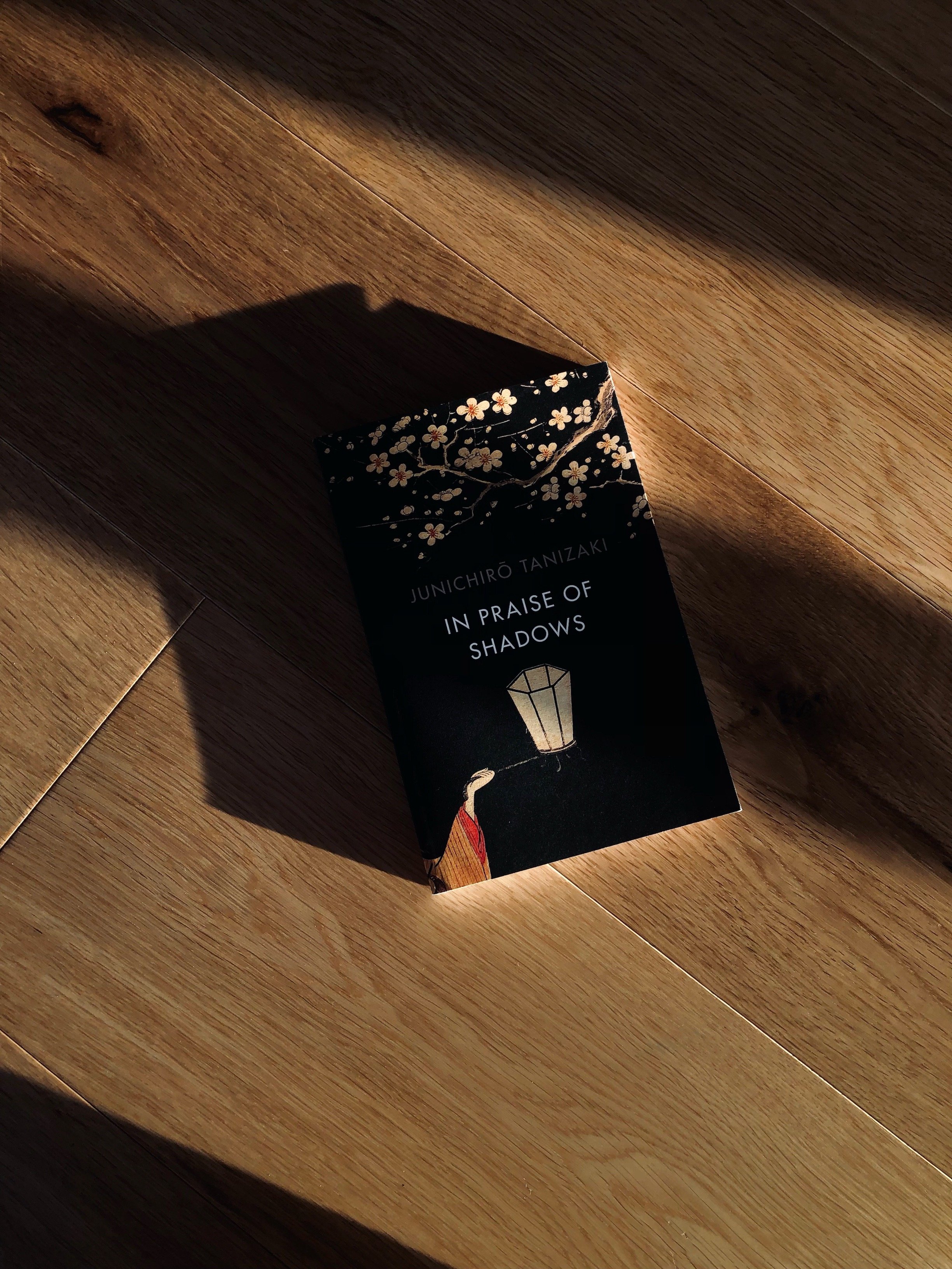Book Review; In Praise of Shadows by Jun’ichiro Tanizaki
Read: 23/6/22 - 24/6/22Format: PhysicalSpoiler free: YesMy rating: ★★★★½
“𝘞𝘦 𝘧𝘪𝘯𝘥 𝘣𝘦𝘢𝘶𝘵𝘺 𝘯𝘰𝘵 𝘪𝘯 𝘵𝘩𝘦 𝘵𝘩𝘪𝘯𝘨 𝘪𝘵𝘴𝘦𝘭𝘧 𝘣𝘶𝘵 𝘪𝘯 𝘵𝘩𝘦 𝘱𝘢𝘵𝘵𝘦𝘳𝘯𝘴 𝘰𝘧 𝘴𝘩𝘢𝘥𝘰𝘸𝘴, 𝘵𝘩𝘦 𝘭𝘪𝘨𝘩𝘵 𝘢𝘯𝘥 𝘵𝘩𝘦 𝘥𝘢𝘳𝘬𝘯𝘦𝘴𝘴, 𝘵𝘩𝘢𝘵 𝘰𝘯𝘦 𝘵𝘩𝘪𝘯𝘨 𝘢𝘨𝘢𝘪𝘯𝘴𝘵 𝘢𝘯𝘰𝘵𝘩𝘦𝘳 𝘤𝘳𝘦𝘢𝘵𝘦𝘴… 𝘞𝘦𝘳𝘦 𝘪𝘵 𝘯𝘰𝘵 𝘧𝘰𝘳 𝘴𝘩𝘢𝘥𝘰𝘸𝘴, 𝘵𝘩𝘦𝘳𝘦 𝘸𝘰𝘶𝘭𝘥 𝘣𝘦 𝘯𝘰 𝘣𝘦𝘢𝘶𝘵𝘺.”
In Praise of Shadows is a sensitive account showcasing the important role darkness plays in Japanese society. Tanizaki argues that the balance between light and shadow is a fundamental aspect of japan’s architecture and culture in general. He demonstrates how the subtleties of interior design have been curated as such to harmonise with lower light intensities, and notes that the pervasion of western ideals disrupts this delicate balance.
The cultural identity of japan - which can be identified as ‘wa’ (和), symbolising harmony, order and unity - is heavily dependent on the paired back, non-intrusive functioning of daily life. In order to give rise to this spaciousness, the existence of shadows is fundamental. Once the light floods in, however, Tanizaki argues that not only is the ambience lost but so is much of the cultural authenticity of the space.
This book, it’s beautiful illustrations and evocative quotations manages to transport the reader to a different time. I recommend this to anyone interested in Japanese culture or architecture from a more traditional perspective.

